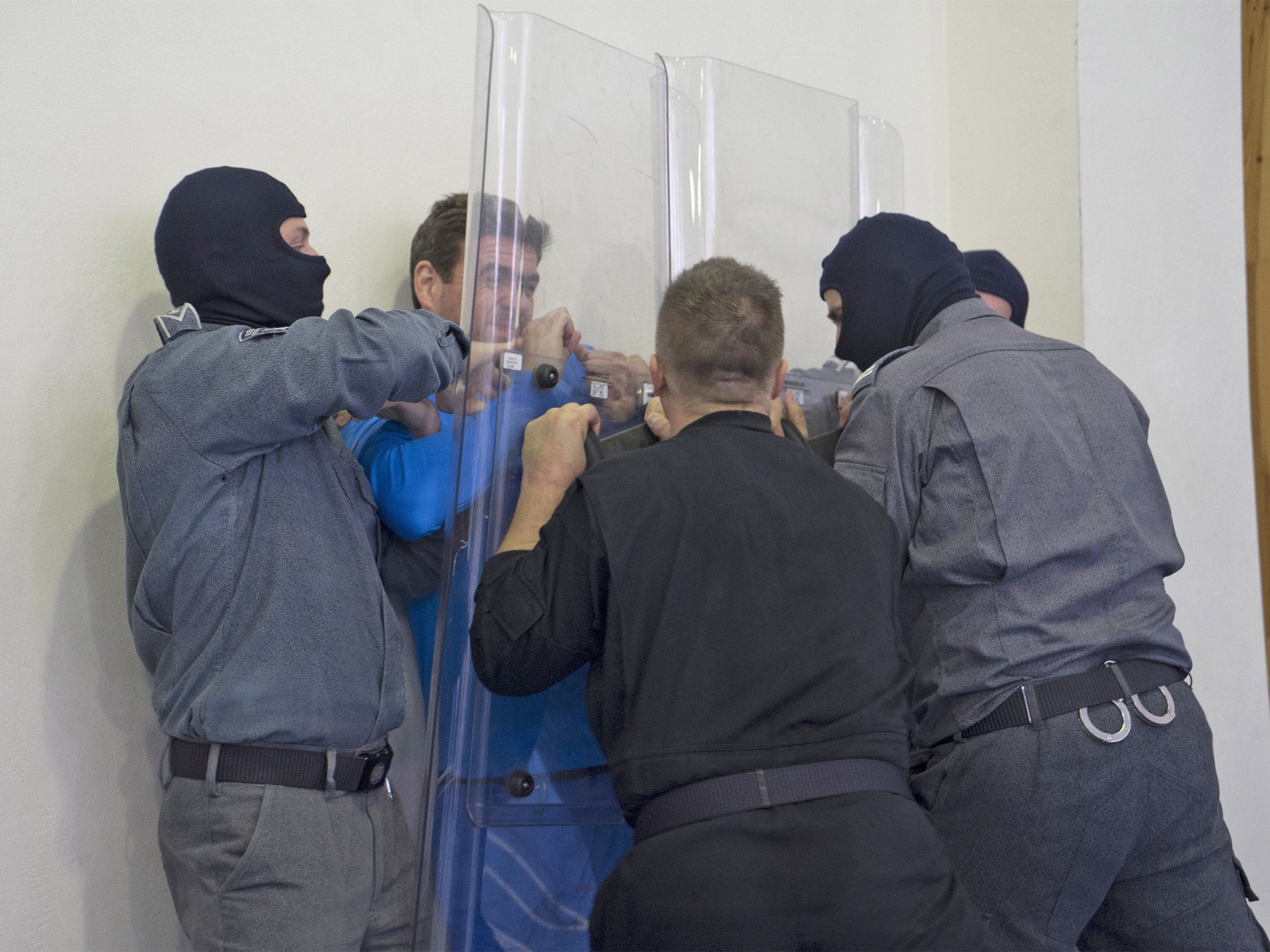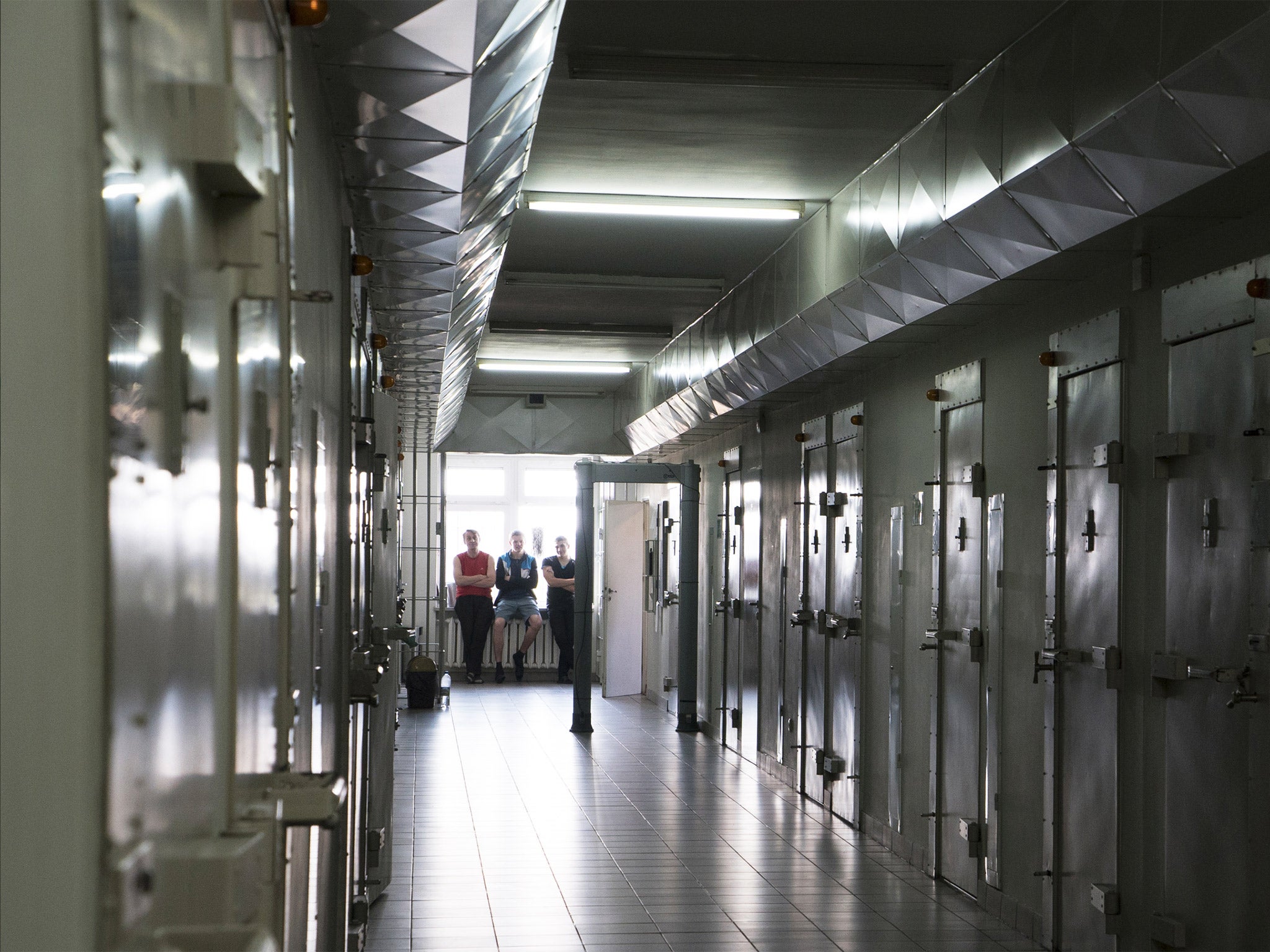Inside The World's Toughest Prisons: Paul Connolly spent time in Poland's Piotrkow for Channel 5 series
The prison is home to some of the world's most dangerous inmates

Your support helps us to tell the story
From reproductive rights to climate change to Big Tech, The Independent is on the ground when the story is developing. Whether it's investigating the financials of Elon Musk's pro-Trump PAC or producing our latest documentary, 'The A Word', which shines a light on the American women fighting for reproductive rights, we know how important it is to parse out the facts from the messaging.
At such a critical moment in US history, we need reporters on the ground. Your donation allows us to keep sending journalists to speak to both sides of the story.
The Independent is trusted by Americans across the entire political spectrum. And unlike many other quality news outlets, we choose not to lock Americans out of our reporting and analysis with paywalls. We believe quality journalism should be available to everyone, paid for by those who can afford it.
Your support makes all the difference.Normally you have to be a war criminal, gangland executioner, rapist or psychopath to secure a room at Piotrkow prison in Poland. Investigative journalist Paul Connolly is none of the above but he has served time in Europe's most notorious lock-up.
After several months of careful negotiation with the Polish authorities, Connolly was allowed to spend five days in the imposing jail. The resulting documentary forms part of the Channel 5 series Inside the World's Toughest Prisons, which will later feature Connolly's visits to Rizal Provincial Jail in the Philippines, El Hongo prison in Mexico and Danli Prison in Honduras.
Piotrow was purpose-built in 2003 to house some of the world's most dangerous prisoners. Inside, every space bristles with sophisticated surveillance systems, every prisoner in every wing in every area from low- to high-risk is watched and listened to every hour of the day. Wardens from all over the world visit to study its unique design, which was intended to snuff out violent prison-gang culture by isolating inmates and keeping opportunities for contact to a minimum.
"Piotrkow is huge but very claustrophobic," says Connolly. "It is vast but impossible to get lost in. It houses prisoners that other prisons in Europe can't handle. It is almost impossible to break out of, and it tends to break people down."
In order to gain the trust of prisoners, Connolly and crew were not always shadowed by guards and, consequently, put themselves at considerable risk.
"There was an enormous amount of emphasis placed on trust and goodwill," he says. "If someone had taken a dislike to me and fancied shanking me, there were ample opportunities. I was very vulnerable at many points, but it would have affected the content hugely if I was surrounded by guards."
In Honduras and the Philippines, Connolly even stayed with lags in cells overnight. Bizarrely, in these locations the prisons were controlled by the prisoners themselves and Connolly was handed over to gangs by wardens at the perimeter. Inside, prisoners followed rules set by other prisoners and were free to come and go from their cells as they pleased. They could buy what they wanted, smoked drugs openly and even had their wives, girlfriends and children over to spend the night.

Connolly explains: "The guards look after all the administrative stuff, the buildings and systems, but inside the prisoners run things. It is bizarre, and a result of lack of government funding. Oddly, it works. A prisoner is far more likely to upset a guard than he is to upset a fellow prisoner. There was no 'us against them' mentality."
In Poland, Connolly spent time with a gangland executioner named Marek who had spent eight years of a 14-year sentence in isolation.
"I tried very hard from the outset to disregard any preconceptions I had about the people I met or pigeonhole them because of the crimes they had committed," he says. "It would have been easy to define them by their crimes, but that was not how they saw themselves. To them, those moments that defined other people's perceptions of them were flashpoints; they were moments of weakness and vulnerability that were out of character. They wanted to be known for their qualities, for being kind, generous, loving and intelligent. Some of the people were charismatic, interesting and well-travelled."
Connolly decided to experience Piotrkow's most extreme isolation cell. In the plain 6ft by 3ft room his hands and feet were shackled and he was placed in a restrictive helmet that obstructed his jaw and made it hard to talk. He spent less than an hour in the room, but even that had a profound psychological effect.
He recalls: "I lost all concept of time. I couldn't separate reality and fantasy. I walked out and, when I turned to do my piece to camera and tried to explain what had happened, I broke down. Every time I tell the story I still well up a little bit. It strips you of your personality."
'Inside The World's Toughest Prisons' begins tonight at 9pm on Channel 5